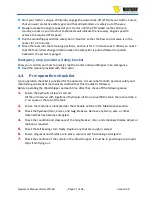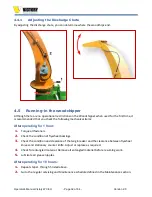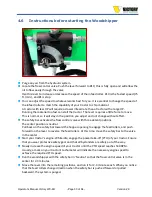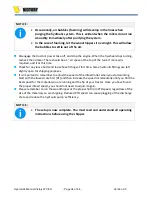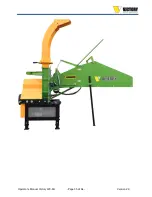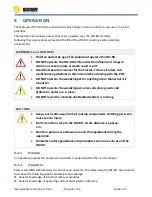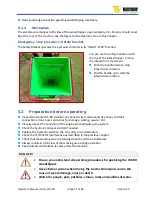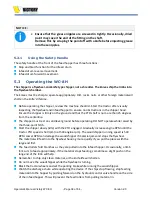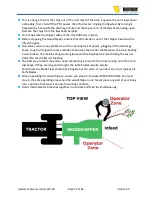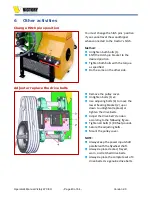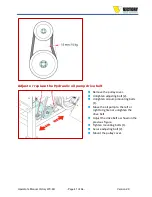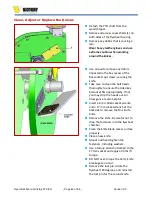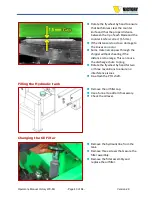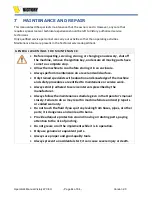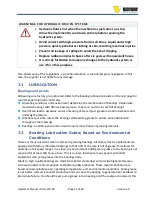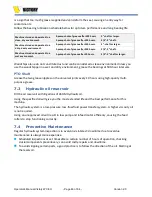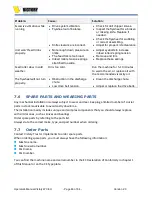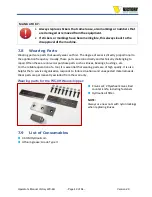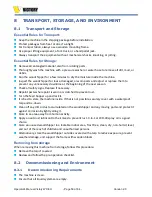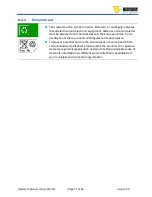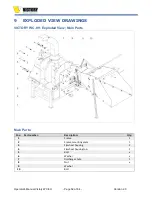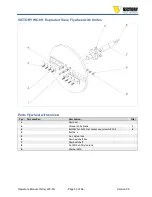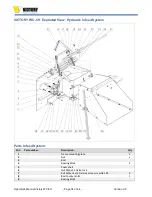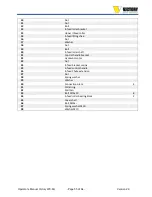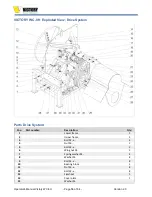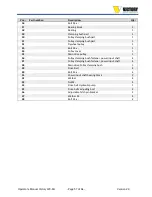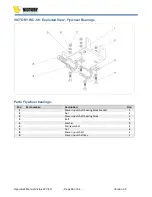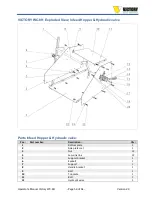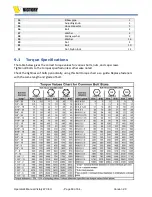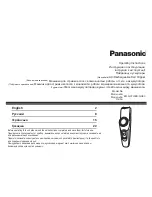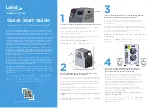
Operator
’s Manual Victory WC-8H
- Page 45 of 64 -
Version 2.0
W A R N I N G S F O R HY DR A ULI C D R I V EN S Y S T EM S
•
Hydraulic fluid is hot when the machine has just come to a stop.
Allow the implement to cool down entirely before repairing the
hydraulic system.
•
Avoid contact with high-pressure fluid at all times. Liquid under high
pressure quickly penetrates clothing or skin, resulting in serious injuries.
•
Prevent oil leakage or spillage to avoid the risk of slipping.
•
Replace rubber and plastic hoses after six years with equivalent hoses.
•
It is strictly forbidden to make any changes to the hydraulic system or
use it for other purposes.
Non-observance of the regulations, as mentioned above, is considered gross negligence. In this
case, the supplier is not liable for any damage.
7.1
LUBRICATION
Bearings and pivots
All bearings are factory pre-lubricated. Refer to the Bearing Lubrication Guide on the next page for
recommended lubrication intervals.
◼
Operating conditions and environment determine the relubrication of bearings. Relubricate
standard bearings with Lithium based grease. Take care, and do not overfill bearings.
◼
Overfill can lead to excessive and or unseating of seals. Inject grease in small increments and
under light pressure.
◼
Whenever possible, rotate the bearings while adding grease to ensure equal distribution
throughout the raceways.
◼
Bearings in extreme environments will require more frequent greasing intervals.
7.2
Bearing Lubrication Guide; Based on Environmental
Conditions
There are many questions when it comes to greasing bearings. All Victory tractor implements are
equipped with factory lubricated bearings so that 33% of the race is full of grease; this allows for
operation at all speed ranges. In a clean, dry environment adding more grease to the bearing is not
required for at least 500 hours of use. This is counter-intuitive to many people with older
equipment who pump grease into the bearings daily.
Modern, high-quality bearings are made from better steel alloys and provide higher tolerances,
increased rubber seal compounds, and better quality lubricants. These recommendations are
based on load, spindle speed, operating temperature, and environmental conditions. More grease
is not better, instead is counterproductive and can cause the bearing to generate heat and lead to
premature failure. You should never pump grease into a bearing until the seals push outward; this

